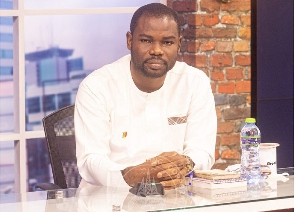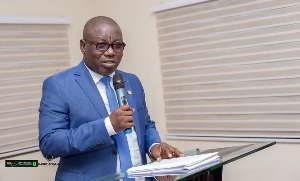Renowned chartered economist Bernard Oduro Takyi, popularly known as BOT, has voiced strong support for the implementation of the 24-hour economy proposed by former President John Dramani Mahama, flagbearer of the opposition National Democratic Congress (NDC).
BOT, a member of the NDC, emphasised that advocating the 24-hour economy is not about insults but a reflection of his personal commitment and enthusiasm to realising its implementation for the benefit of Ghanaians.
BOT clarified that the 24-hour economy concept involves allowing people to work flexible hours, with some individuals working from 8 am to 5 pm, and others taking over for the next shift.
He drew examples from countries like the United States, the United Kingdom, Singapore, South Korea, some 26 Eastern European nations, and Kenya, where the 24-hour economy has created numerous opportunities for their respective people.
His comments were made in response to Vice President Bawumia’s assertion that Ghana is already experiencing a 24-hour economy, citing examples such as the Electricity Company of Ghana, Ghana Water Company Limited, and hospitals in the country.
BOT emphasised that achieving a 24-hour economy requires substantial policy programmes, not mere political gimmicks.
BOT argued that anyone claiming Ghana is already practicing a 24-hour economy is being disingenuous, stating that entities like the Electricity Company of Ghana operate within a regulated time frame, not a true 24-hour cycle.
To successfully implement a 24-hour economy, he stressed the need for measures such as incentives for companies, regulated electricity bills, and substantial investments in public infrastructure, public safety, and public transport.
According to BOT, key components of a 24-hour economy, also known as Night Economy (NTE), include deliberate policy intervention and state support, encompassing significant investments in public infrastructure and safety, with a particular focus on labor regulation.
Business News of Wednesday, 22 November 2023
Source: classfmonline.com













